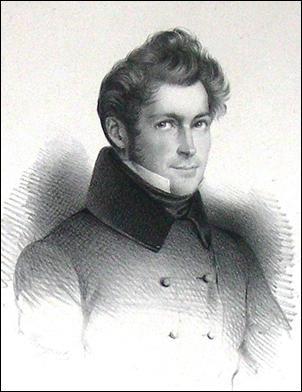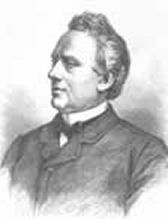Elections in Luxembourg are held to determine the political composition of the representative institutions of the Grand Duchy of Luxembourg. Luxembourg is a liberal representative democracy, with universal suffrage guaranteed under its constitution. Elections are held regularly, and are considered to be fair and free.

The Chamber of Deputies, abbreviated to the Chamber, is the unicameral national legislature of Luxembourg. The metonym Krautmaart is sometimes used for the Chamber, after the square on which the Hôtel de la Chambre is located.
The Constituent Assembly of Luxembourg was a constituent assembly called in 1848 in Luxembourg to write and pass a new national constitution.
Partial general elections were held in Belgium on 25 May 1902. The result was a victory for the Catholic Party, which won 54 of the 85 seats up for election in the Chamber of Representatives. Voter turnout was 95.7%.
General elections were held in Belgium on 29 August 1831. They were the first elections to the new bicameral parliament created by the constitution adopted in February 1831.

Partial general elections were held in Belgium on 11 June 1850. In the Chamber of Representatives elections the result was a victory for the Liberal Party, who won 69 of the 108 seats. Voter turnout was 69.1%, although only 40,435 people were eligible to vote.

Partial general elections were held in Belgium on 13 June 1854. In the elections for the Chamber of Representatives the Liberal Party and the Catholics won 54 seats each. Voter turnout was 61%, although only 45,884 people were eligible to vote.

General elections were held in Belgium on 10 December 1857, the first full general elections since 1848. The elections were called by royal order of 12 November 1857, dissolving the Chamber of Representatives that had convened in a new session only two days earlier.

General elections were held in Belgium on 9 June 1868. In the elections for the Chamber of Representatives the result was a victory for the Liberal Party, which won 72 of the 122 seats. Voter turnout was 55.6%, although only 55,297 people were eligible to vote.

Partial general elections were held in Belgium on Tuesday 11 June 1872. In the elections for the Chamber of Representatives the result was a victory for the Catholic Party, which won 71 of the 124 seats. Voter turnout was 55.5%, although only 54,933 people were eligible to vote.

Partial general elections were held in Belgium on 13 June 1876. In the elections for the Chamber of Representatives the result was a victory for the Catholic Party, which won 67 of the 124 seats. Voter turnout was 67.5%, although only 63,278 people were eligible to vote.

Partial general elections were held in Belgium on 8 June 1880. In the elections for the Chamber of Representatives the result was a victory for the Liberal Party, which won 74 of the 132 seats. Voter turnout was 67.2%, although only 62,936 people were eligible to vote.

Partial general elections were held in Belgium on 14 June 1859. The result was a victory for the Liberal Party, which won 69 of the 116 seats in the Chamber of Representatives and 31 of the 58 seats in the Senate. Voter turnout was 55.9%, although only 49,672 people were eligible to vote.

Partial general elections were held in Belgium on 9 June 1863. The result was a victory for the Liberal Party, which won 59 of the 116 seats in the Chamber of Representatives and 33 of the 58 seats in the Senate. Voter turnout was 74.5%, although only 52,519 people were eligible to vote.

Legislative elections were held in Belgium in June and July 1884, for partial Chamber and full Senate elections respectively. Voter turnout was 79.1% in the Chamber of Representatives elections, although only 69,276 people were eligible to vote.

Partial general elections were held in Belgium on 12 June 1888. The result was a victory for the Catholic Party, which won 98 of the 138 seats in the Chamber of Representatives and 47 of the 69 seats in the Senate.
Partial general elections were held in Belgium on Tuesday 13 June 1837 in which 51 of the 102 seats in the Chamber of Representatives were elected. Voter turnout was 56.0%, although only 24,526 people were eligible to vote. Under the alternating system, Chamber elections were only held in five out of the nine provinces: Antwerp, Brabant, Luxembourg, Namur and West Flanders. The Senate was not up for election.
Partial legislative elections were held in Belgium on 10 June 1845 in which 48 of the 95 seats in the Chamber of Representatives were elected. Voter turnout was 77.0%, although only 22,771 people were eligible to vote.

Early general elections were held in Luxembourg on 20 October 2013. The elections were called after Prime Minister Jean-Claude Juncker, at the time the longest-serving head of government in the European Union, announced his resignation over a spy scandal involving the Service de Renseignement de l'État (SREL). The review found Juncker deficient in his control over the service.

The First Bettel Government was the ruling government of Luxembourg from 4 December 2013 to 5 December 2018. It was led by Prime Minister Xavier Bettel and Deputy Prime Minister Etienne Schneider. It was formed on 4 December 2013, after the 2013 election which saw all 60 seats in the Chamber of Deputies renewed. The government was a traffic light coalition between the Democratic Party (DP), the Luxembourg Socialist Workers' Party (LSAP) and The Greens. It was succeeded by the second Bettel Government on 5 December 2018.









